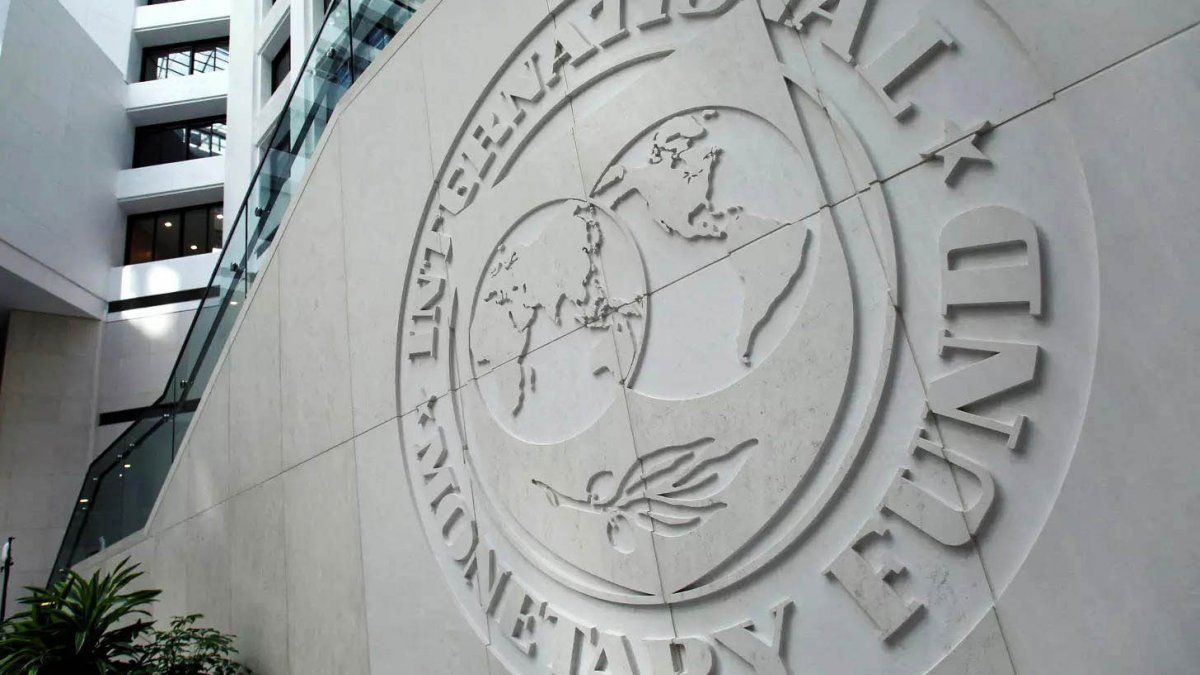The board of International Monetary Fund (IMF) will meet next Wednesday in Washington to analyze the agreement negotiated by the President’s Government Javier Milei with the negotiators of the multilateral credit organization weeks ago. However, the extension of the negotiations for the omnibus law could mean a headache for the Minister of Economy, Luis Caputo.
IMF representatives Luis Cubeddu, deputy director of the Western Hemisphere Department; Ashvin Ahuja, Head of Mission and Ben Kelmanson, representative of the IMF in Argentina, were in the country in the first days of January to reach an agreement on the seventh review within the framework of Argentina’s SAF. If it is approved by the IMF Executive Board, Argentina would have access to about 4.7 billion dollars.
“Understandings were reached on a strengthened set of policies to restore macroeconomic stability and get the current program back on track, as key program objectives were missed by wide margins due to serious political setbacks from the previous government,” the agency said at the time.
The points of the Government’s agreement with the IMF
Fiscal policy
The IMF reported that the Argentine authorities “intend achieve a primary surplus of 2 percent of GDP this year (consistent with general equilibrium), through a combination of income and expenditure measures.
On this point, they stressed that although a decrease in spending is expected, there will also be a tax increase to commerce and withholdings to the countryside: “It is expected that the income will be temporarily supported by higher taxes related to commerce, as well as for profits derived from the normalization of agricultural production”.
“Meanwhile, the rationalization of spending will be supported by reductions in administrative costs, energy and transportation subsidies, discretionary transfers to provinces and state-owned companies, and lower-priority infrastructure spending. The initial measures will be complemented by efforts throughout the Agreement with the IMF: the first market repercussions from the Government’s announcement. safeguard an overall fiscal balancethrough high-quality improvements in the efficiency of tax and spending systems“.
Social protection
Regarding social protection, the organization assured that the Government “significantly reformed social assistance through child benefit and food stamp programs” and they pointed out that “they move away from social programs distributed through expensive intermediaries. “They plan to preserve the real value of pensions and increase social assistance as conditions warrant.”
Exchange policy and reserves
One of the most important points of the agreement refers to exchange rate policy. In that sense, they highlighted that “after the great devaluation of mid-December, the exchange policy of the authorities will continue to support reserve accumulation objectives.”
“It is important to highlight that have abandoned the opaque system of administrative import controls (SIRA) and are in the process of addressing the great over-indebtedness of importersoffering exchange instruments to importers who properly record their commercial debts,” highlighted the IMF.
Finally they pointed out: “They have gone to a more market-based regime and they have abandoned the previous approach of intervening in currency markets of parallel and non-deliverable futures, while lifting trade restrictions. They are firmly committed to continue eliminating multiple monetary practices and currency restrictions in the short term, while seeking to dismantle capital flow management (CFM) measures as imbalances are addressed and conditions permit. These policies are expected to lead to an accumulation of net reserves of 10 billion dollars by the end of 2024, including 2.7 billion dollars accumulated during the last weeks of 2023“, celebrated the organization.
Monetary politics
On the side of monetary policy, another fundamental point, the organization reported that the position on this matter “will evolve to support money demand and disinflationwhile the framework and operations of monetary policy are will be adjusted to strengthen their anchoring function“.
“The authorities have committed to end credit from the Central Bank to the Government and they will continue reducing the large surplus of pesoswhile will gradually strengthen the central bank’s balance sheet“.
Financing plans
The IMF announced that “according to the fiscal program, the Government will not seek any form of net market financingbut will focus on improve the maturity profile of domestic debt. “Rebuilding relationships with international capital markets is also a top priority.”
Structural policies
On the other hand, the International Monetary Fund explained that “the authorities are determined to address long-standing impediments to growth and exports, and boost the vast energy potential and mining of Argentina, including increasing competition and simplifying bureaucracy. “The recent legislative initiatives represent an important step in this direction, for which political support is being sought.”
Program modalities
Finally, and regarding the modality of the continuity of the debt program, they clarified: “The authorities updated program objectivesin line with his plans for a more ambitious fiscal and external consolidation”.
Source: Ambito




